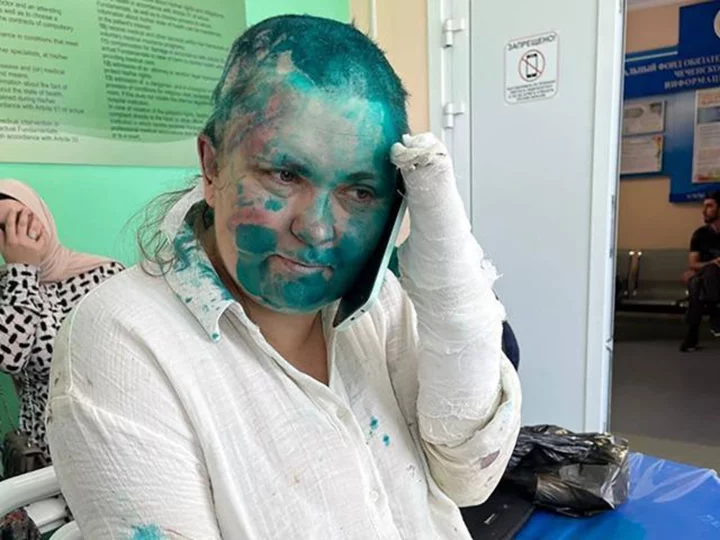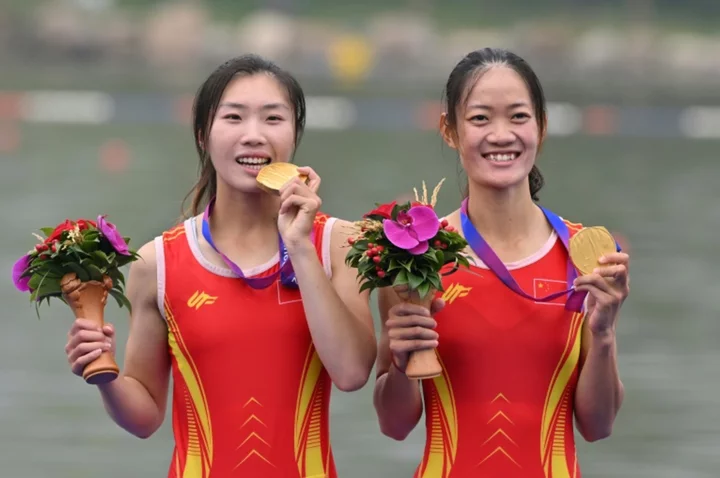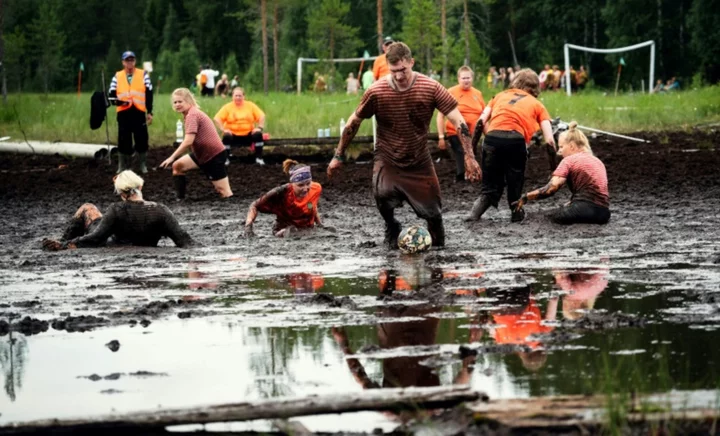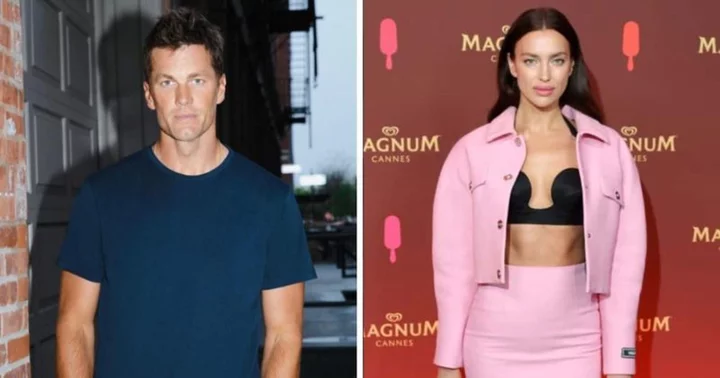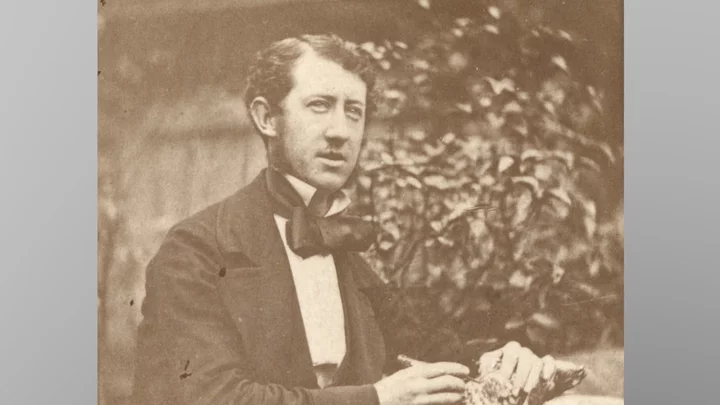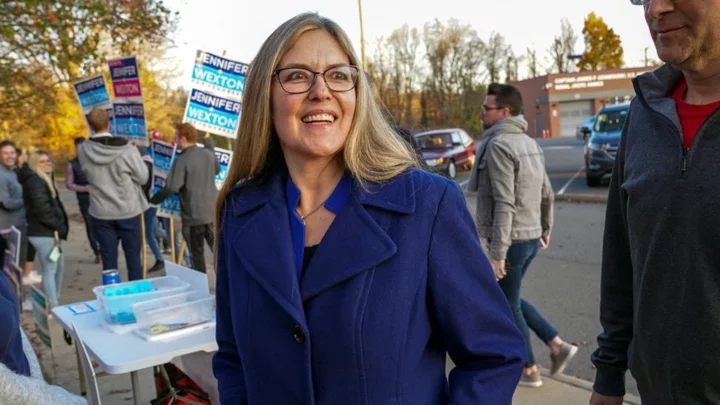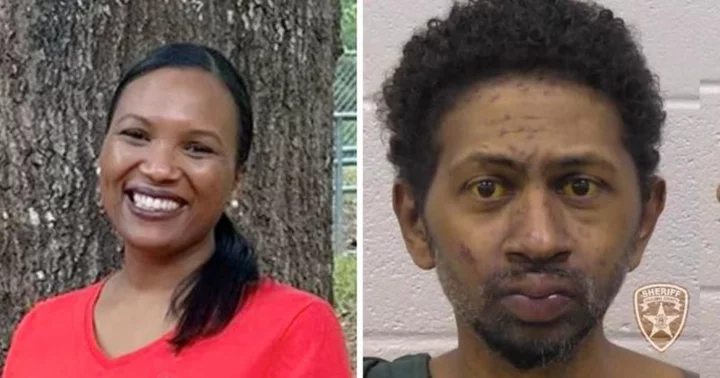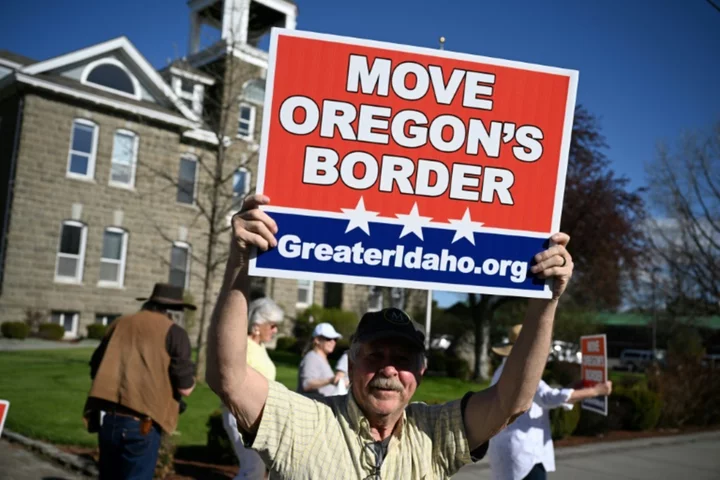Elena Milashina, a prominent Russian journalist who uncovered the horrific crackdown on gay men in Chechnya, has been beaten up alongside a lawyer while visiting the southern Russian republic.
Milashina and attorney Alexander Nemov were attacked while they were on the way to attend a court sentencing of a human rights activist in Chechnya's regional capital, Grozny.
She said her attackers "knew what they were doing," and were "in a hurry," explaining she believes they intended to frighten her and gain access to her and Nemov's devices.
"They beat us up two times," Milashina said in a recorded interview with her employer Novaya Gazeta. "They were very specific, they knew what they wanted, knew what their limits were, beyond which they could not go."
In the video interview Milashina is shown visibly bruised, her head shaved off and painted green.
"They did this," she says when asked about her hair. "I don't have any wounds, thank God, just bruises," she added, going on to explain she believes Nemov and her were targeted for their professional activity,.
Nemov was beaten and stabbed with a knife, but he still planned on attending the court hearing, according to the Novaya Gazeta.
The newspaper reported that the perpetrators are unknown, also noting that Milashina and Nemov were asked to give a statement to police at the hospital but refused.
Milashina and Nemov were attending a court ruling in the case of Zarema Musaeva -- the mother of Chechen activists, the Yangulbaev brothers, who are vocal critics of Chechen leader Ramzan Kadyrov. Musaeva was sentenced to five years and six months in prison on charges of fraud and violence against a police officer, TASS said.
The Kremlin called it "a very serious attack" that required investigative actions and serious measures to be taken. Kremlin spokesman Dmitry Peskov said Russian President Vladimir Putin was informed of the attack and the incident is being handled by Russia's human rights ombudsman.
Russia's Investigative Committee has launched an investigation into the attack.
Russia's human rights commissioner, Tatyana Moskalkova, "agreed to intervene in the situation on the request of the editorial office," Novaya Gazeta said. CNN has reached out to Russia's Human Rights Commissioner for comment.
In a statement to Russian state media RIA Novosti, Moskalkova confirmed that the pair were attacked by unknown people and that Milashina's fingers were broken. Moskalkova also said she asked the Commissioner for Human Rights in Chechnya to ensure the safety of the journalist.
'Cowardly assault'
Human rights groups have condemned the violent assault, calling for a swift investigation.
Sergey Babinets, the head of the Russian human rights organization the Crew Against Torture, said that the attackers had mentioned Milashina's work and previous court reporting while beating the pair. "This is clearly not a gangster attack, this is a direct attack for their work," he said in a statement
"Amnesty International condemns this cowardly assault in the strongest terms and calls on the Russian authorities to swiftly bring the perpetrators to justice and ensure the safety of those who seek truth and justice," Amnesty International's Eastern Europe and Central Asia director, Marie Struthers, said.
Milashina has been previously threatened for her journalism. Following her reporting on a crackdown on gay men in Chechnya in 2017, Muslim clerics in Chechnya called for "retribution" against her and other journalists. She faced death threats and was temporarily forced to flee the country.
The 2017 crackdown saw hundreds of men allegedly held and tortured in detention.
At the time, one witness who fled Chechnya after being arrested told CNN that hundreds of gay men like him were being rounded up by the authorities and held in appalling conditions in at least three detention centers.
The detentions prompted heavy international criticism of Russia. The country has a checkered record on gay rights, breaking up gay pride marches and passing anti-gay propaganda laws.
But the allegations of detention camps and torture emerging from Chechnya were unprecedented. In response, Chechen leader and Kremlin-backed strongman Kadyrov said there were no gay people in his republic, and that if there were any they should be taken away from the region

